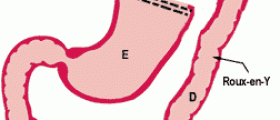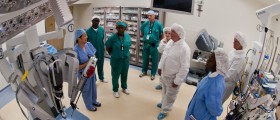
Gastric Bypass Surgery
Gastric bypass surgery is an invasive surgical procedure performed on obese people. The goal of the surgery is to reduce the actual size of the stomach and this way allows reduction in weight by absorption of smaller amounts of food. This surgical procedure has advantages and disadvantages and one must be familiar with both. Obesity is considered a significant health issue. It carries risk for many illnesses which shorten a patient's life span and cause many disabilities. Yes, gastric bypass surgery is an excellent choice for morbidly obese people and can efficiently prevent majority of disastrous complications associated with obesity. On the other hand, the very surgery carries certain risks and one who eventually undergoes gastric bypass surgery must strictly follow doctor's rules after the procedure.
What are Alternatives for Gastric Bypass Surgery?
Even though this surgery should be reserved for morbidly obese people, certain numbers of obese people who do not belong to this group also opt for gastric bypass surgery. For them there are other alternatives to lose weight, both surgical and conservative.Surgical Alternatives for Gastric Bypass SurgerySurgical alternatives for gastric bypass surgery include lap-band gastric restriction and vertical banded gastroplasty. In lap-band gastric restriction a surgeon uses a band which is fasten around the upper stomach. This way a surgeon creates a separate and smaller stomach pouch. There is no cutting of the stomach and desirable effects are achieved by restriction of food intake. Vertical banded gastroplasty includes stomach stapling and creation of a smaller stomach pouch. The effects are similar to those in lap-band gastric restriction.Non-surgical Alternatives for Gastric Bypass SurgeryNon-surgical alternatives for gastric bypass surgery include dietary therapy, exercise therapy and behavioral therapy.
Dietary therapy includes a strict diet with reduced calorie intake. This way weight loss is gradual and one adopts healthy dietary lifestyle. The patient is taught which food to consume and how to reduce intake of excessive calories. The food must be rich in all the necessary nutrients, vitamins and minerals. It is best to consult a well-experienced dietitian who will create a perfect diet and teach patients how to eat healthy and lose weight gradually.
Exercise therapy included moderate physical exercises. Special exercise regimes are designed by well-experienced professionals and these regimes are adapted to each patient. At one point patients may engage in aerobic exercises, dance, brisk walking, cycling, jogging and swimming. Based on the overall health condition the doctor decides which activity is most suitable for each patient.
And finally, behavioral therapy helps implementing and maintaining healthy eating habits and exercising. Patients must become conscious about the effects of obesity and why it is important for them to lose excess of fat tissue and adopt new, healthy habits. Patients also need to be motivated and they require proper support during the entire process of weight loss.
















Your thoughts on this
Loading...